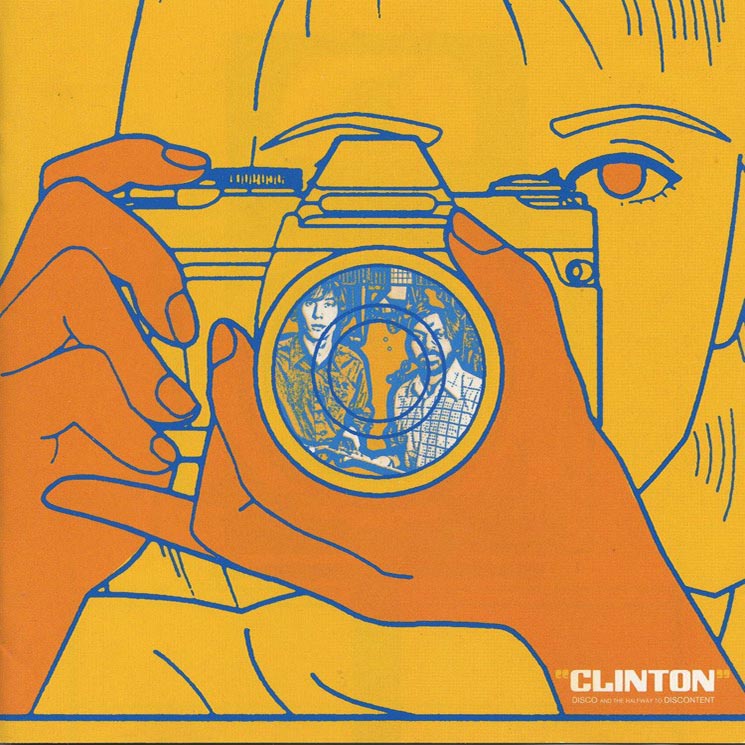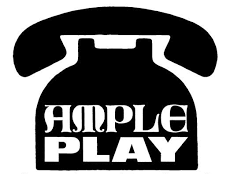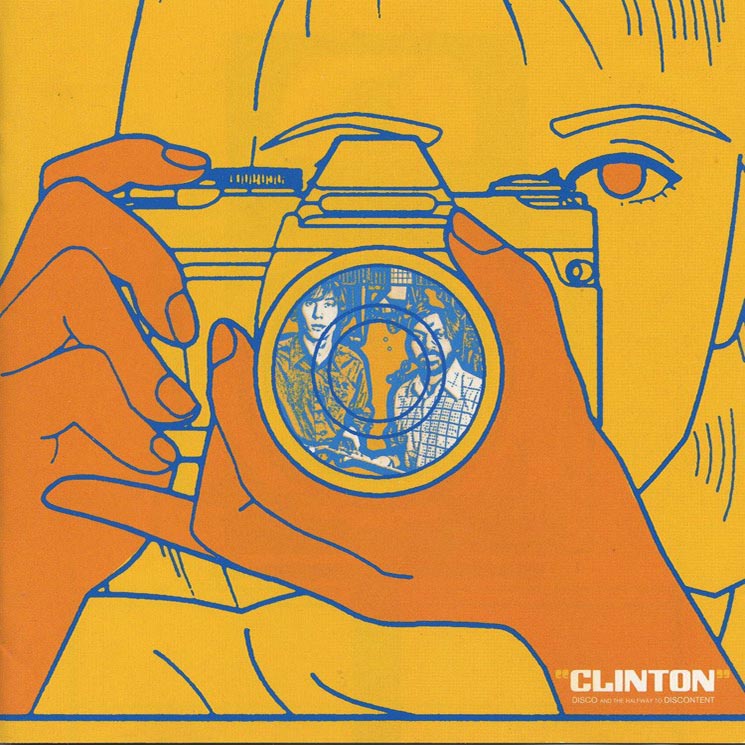Ample Play Records
Clinton 'Disco and the Halfway to Discontent'
Clinton 'Disco and the Halfway to Discontent'
Couldn't load pickup availability
"Clever title that, eh? Do you see, disco is entombed in the word 'discontent'! And as we all know such word fun can signify only one thing: po-lit-ikal aj-en-da... Just like in the old days!"
First off, some history. Cornershop got themselves noticed in '93 by slagging Morrissey, who had just made a flag-waving doofus of himself at Finsbury Park. The music press, yes, including us salivating dogs at NME, lapped up Cornershop: here was a band who, in the pre-Britpop nadir, finally had summat to say (oh, and never mind that they weren't actually that, er, accomplished).
Now, in '99, thanks to the rise of dance music, DJs and, in particular, mong Ibizan muzak, the thinking person's music press once again finds itself drying up, hoisted by its own intellectual petard and unable to come to terms with this thing called 'dance'. There. Is. Nothing. To. Write. About. Help. Us. But trust the vastly-improved-but-still-charmingly-rickety Cornershop, oops, rather side-project Clinton, to come up trumps once again with some good old ante-upping musical product. Ladies and gentleman, they give you the disco dialectic...
What we have here, then, is an album of impossibly adorable disco - Star Wars "ping p-p-p-ping ping" bits, cheesy synths, George Clinton (!...hmm) workouts... all delivered in a slightly unsettlingly ersatz kitschness, half-hinted ironies, indietastic samples, hip-hop phrasings and The Asian Influence seductive throughout. Muse it is not.
On catchy, clap-happy track-opener 'People Power In The Disco Hour' mainman Tjinder Singh boasts of a "natty natty movement... we're gonna take this movement on to the streets"; the theory being that legions of "brothers and sisters... take the disco heat on to the streets". How precisely this leads to an overthrowing of the forces of darkness is perhaps ours to reason how, or indeed why.
The discourse (cheers) is sometimes obvious. Sometimes not. Singh's rancour would seem to be levelled particularly at the music industry; on 'Electric Ice Cream' managers, DJs, A&Rs and journos are sneered at ("management honky-tonk", "the crooked asses of DJ-ziz", "to all you A&Rs there's a lot of mileage in cars" - ie, go and flog cars, pal - "Manic panic").
Other tracks are less emphatic in their targets. 'Giddian Di Rani' is Bollywood disco over panting couple having orgasmic sex, 'Sing Hosanna' is based on the psalm of the same name, while the minute-long 'Mr President' is merely a burst of Jon Spencer-style pizzazz ("ladies and gentleman, the White House").
It may not be immediately obvious what the hell is going on, but one thing's clear: disco is being toyed with that lite-est of music is being imbued with some kind of meaning. The medium is becoming the message. Woah.
Of course this is not a new idea. Some loony New York rich kids set up Ze Records in the early-'80s, whose ethos was to 'intellectualise' disco, and targeted, erm, Kid Creole, Madonna... attempts were also made to foist political analysis on the lyrics of Chic. 'Yowsa Yowsa Yowsa'? 'Le Freak'? Ze, not surprisingly, failed.
But in these stagnant times when dance's political arm, rap, has been hijacked by unbearably crass white youths, Clinton have managed to make disco sound cunningly necessary and genuinely menacing. Vive le boob tube revolution.
8 out of 10 - NME
Share


